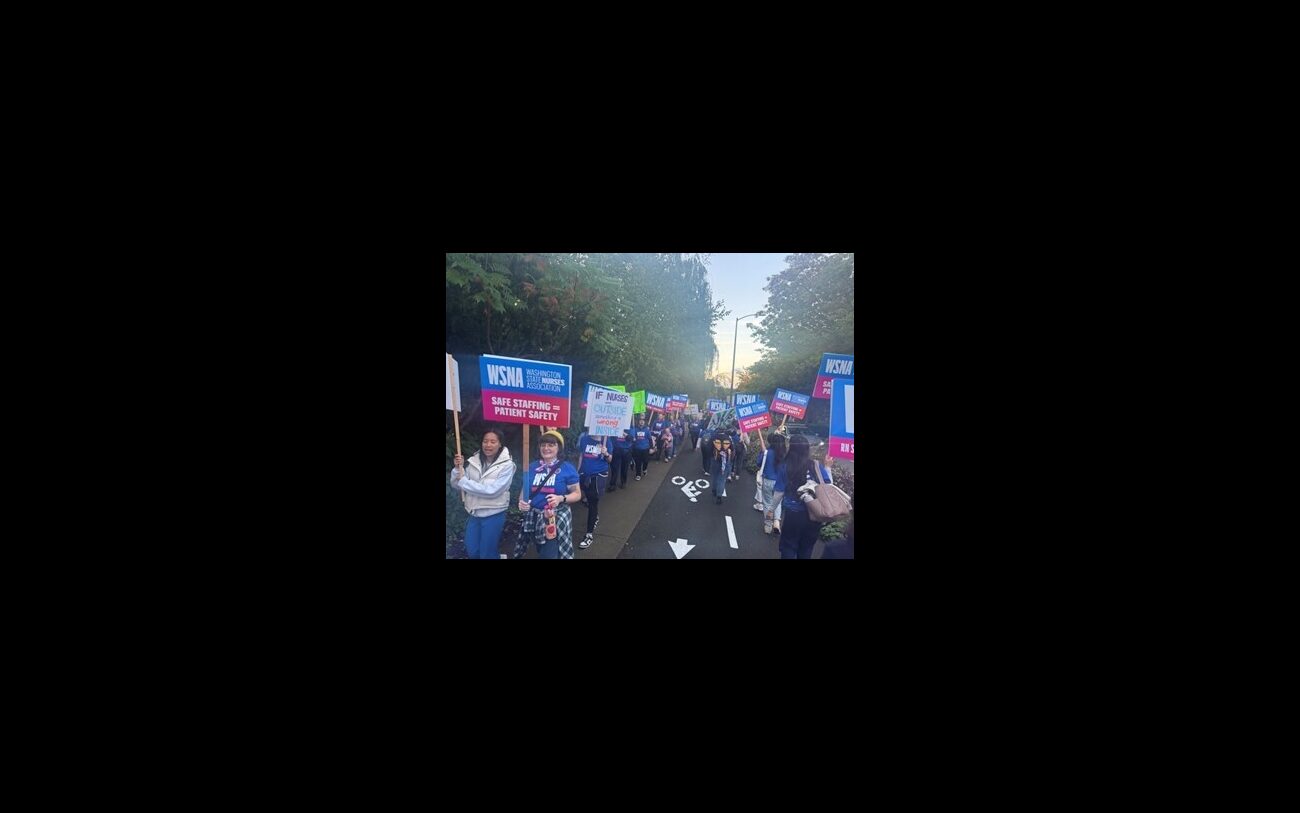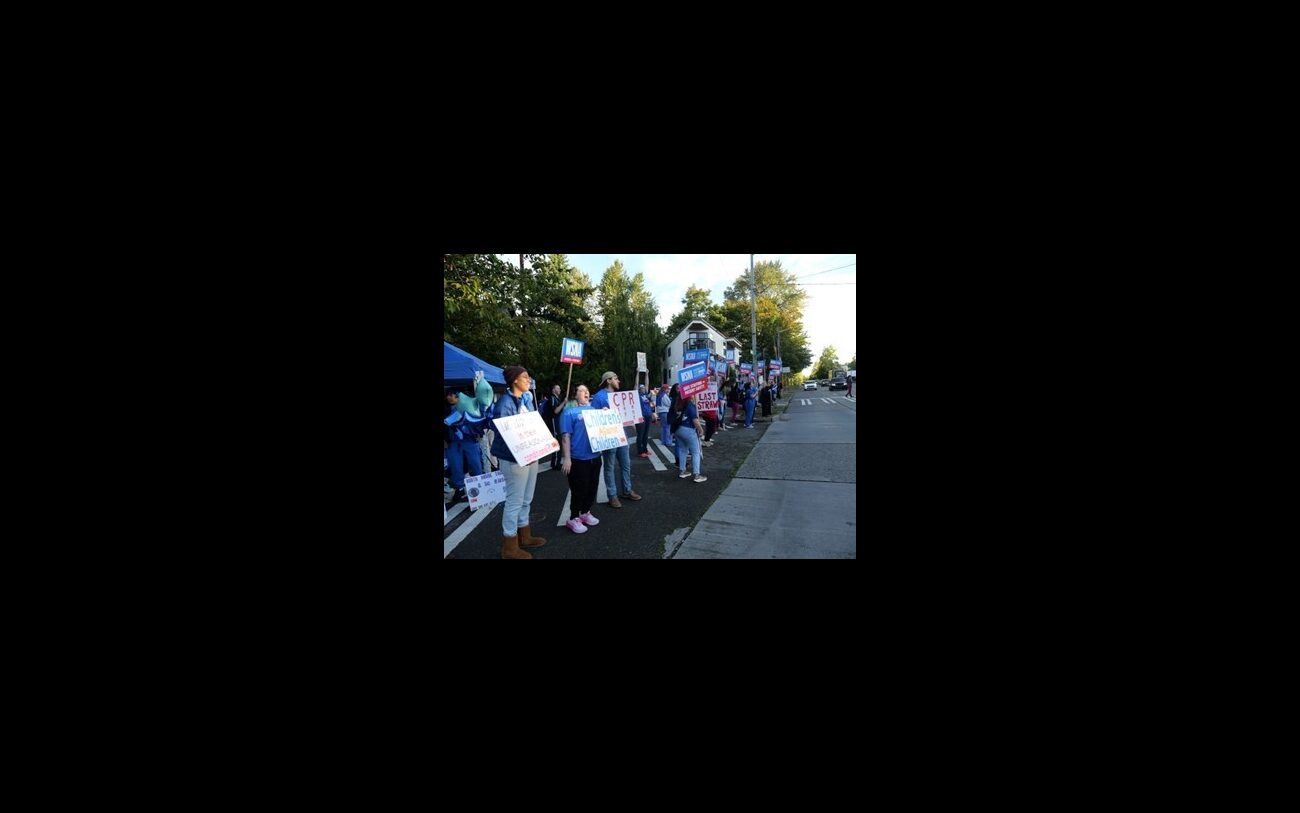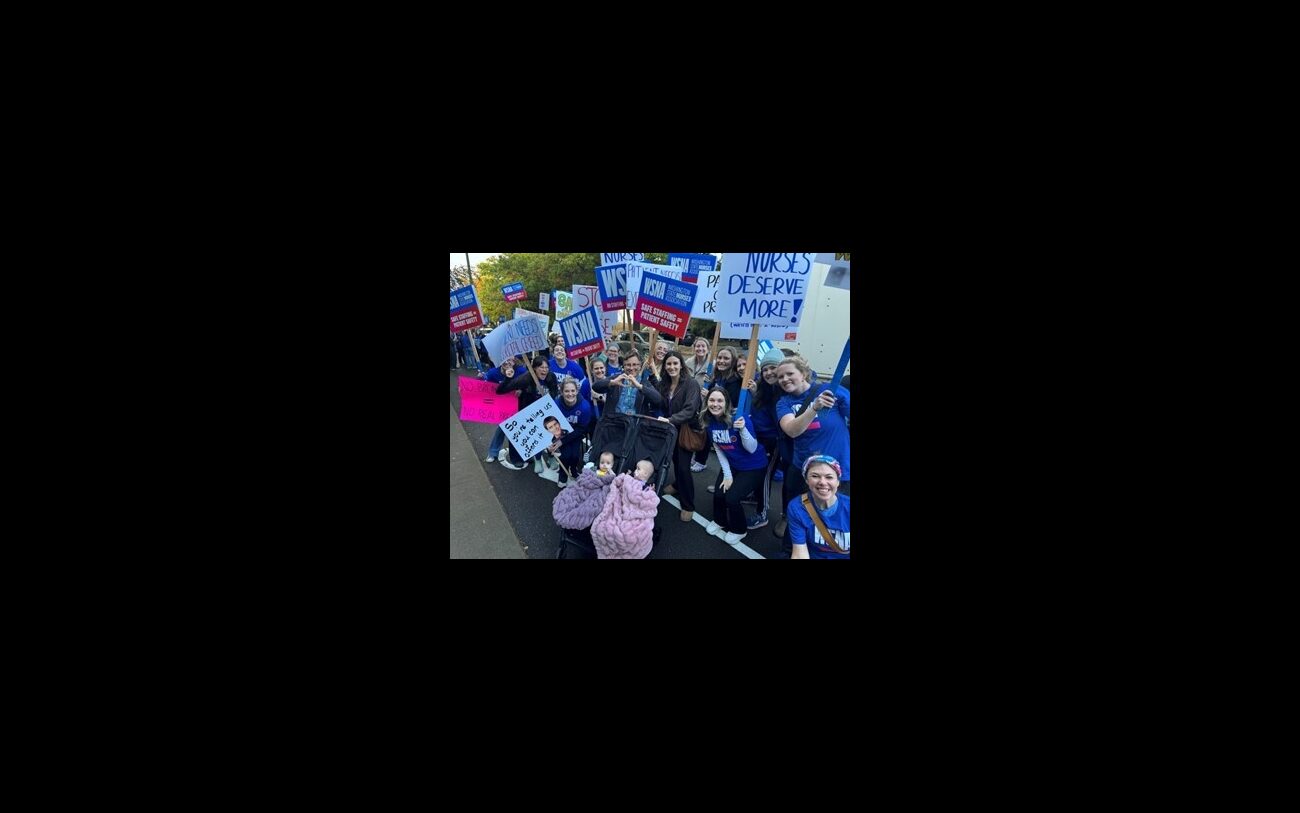What is Next for Seattle Children’s Nurses?
Posted Nov 7, 2025
Union Meeting attendance was off the charts!
Almost 1,000 people participated in this week’s union update meetings about preparing for a strike! Many questions were answered but there are still a TON of questions around what is next. Today we are going to break it down.
Here is where we are: Assessments
Our team wants to know what every single nurse thinks - if you are willing to strike or not - and this means rigorous assessments. In the coming weeks, strike captains will be attempting to reach every nurse in our bargaining unit to determine if you are willing to strike for the issues that are still on the table. This will be a monumental lift and we need as many people helping as possible. Our goal is one strike captain for every ten nurses and if you are wondering how long it would take us to get to a strike, the answer is that it depends directly on the information that these assessments bring back to us and the speed in which we are able to reach our entire membership.
Upcoming Strike Captain Training Opportunities
- Tuesday, November 11, 7:30 - 8:30 am
- Tuesday, November 11, 7:30 - 8:30 pm
- Thursday, November 13, 6 – 7 pm
View a live list of upcoming strike captain training dates and sign up to be a strike captain here:
Here is what to expect moving forward
- As soon as we complete our strike assessment, we submit our request to hold a strike vote to the WSNA Labor Executive Council (made up of elected bedside nurses)
- That team takes a few days to convene and issue a decision
- Assuming we get an authorization to take the vote, we then give SCH nurses a 7-day notice of the strike vote days and times.
- We hold our strike vote
- Assuming our vote is successful, we then present our vote results to the WSNA cabinet who will take a few days to authorize a strike
- If we get our authorization, WSNA gives the hospital a minimum of 10-day notice so they can start preparing for the safe transition of patient care
The hospital prepares for a strike by attempting to hire as many scabs as possible. They also cancel elective surgeries and try to move as many patients as possible out of the hospital (through early discharges, transfers etc.).
As far as the day of the strike, what usually happens is that the nurses on the off-going shift give report (either written or verbal) to any non-union nurses the hospital can scrounge up (think managers, directors, educators, maybe Bonnie?). After all of our union nurses leave, the scab nurses are typically brought in under heavy security while we are on the picket line.
As you can imagine, walking out of the hospital and standing on that line can be incredibly emotional. Hospital management depends on those intense emotions and your innate compassion to keep you at the bedside or to entice you to cross the line. It’s important to remind ourselves that management could stop this process at any point by meeting our very reasonable demands at the bargaining table.
This is a process with multiple check points for good reason. Striking is the strongest possible weapon we have, and it must be done with clarity and overwhelming support from as many SCH nurses as possible. We need feedback from each and every nurse.
Still have questions about striking?
We would be surprised if you didn’t which is why we have prepared an initial frequently asked questions sheet. Feel free to print and share around. If you asked your question in the chat at the meeting and don’t see it here, don’t worry, we have more on the way, this is just the first round and we wanted to get it out as fast as possible with the difficult decisions ahead.
Do not hesitate to contact any of the officers if you have questions. All of our contacts are on our WSNA website. https://www.wsna.org/union/seattle-childrens-hospital. Also, utilizing our Instagram @sch_wsna offers quick updates and opportunities for DMs.
In solidarity,
Your Bargaining Team
Annika Hoogestraat, Kara Yates, Lindsey Kirsch, Sam Forte, Katie Podobnik, Therese Hill, Kelsey Gellner, AJ Nagal, Emma Gordon, Sarah Munro, Cody Ian, Lauren Lustyk, Regan Halom, Jon McAferty and Anne Marie Fountain
WSNA Nurse Rep Linda Burbank at lburbank@wsna.org



